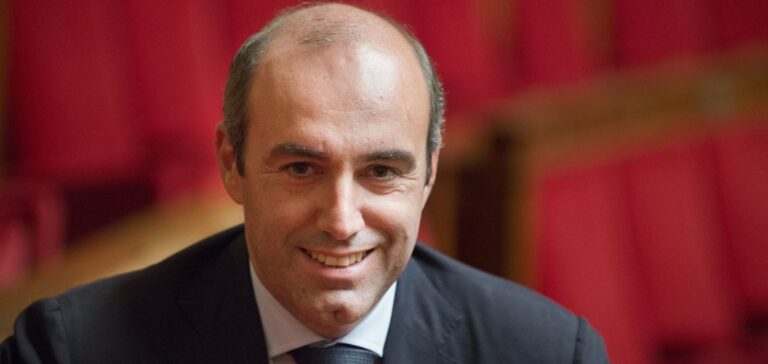“Get your head out of the turtleneck,” said Olivier Marleix, head of the LR deputies, to Bruno Le Maire on Thursday, calling for inspiration from Spain to obtain a reduction in electricity prices in Brussels.
“When you’re done giving clothing advice Bruno Le Maire, you will explain to our companies why they pay 640EUR/MWh electricity while the Portuguese or Spanish are at 115EUR/MWh,” said on Twitter the deputy of Eure-et-Loir, in reference to the promise made
by the Minister of Economy to wear turtleneck sweaters to “save energy”.
On Sud Radio, Mr. Marleix was indignant about the “crazy heights” reached by these prices “while electricity is produced in France at 50 euros.
Friday in Brussels at the meeting of European energy ministers, “the government must take things in hand and not hesitate to have a real arm wrestle, our law allows to get out of the European rules,” he added.
While the executive is urging energy sobriety as winter approaches, Bruno Le Maire said Tuesday on France Inter that his ministry would not turn on the heat “until the temperature (inside) is below 19 degrees,” and that he himself would now wear collars
rolled.
These comments have been widely mocked by the opposition, as have the photos of Prime Minister Elisabeth Borne in a brightly coloured duffel coat on Wednesday, or the interview with the Renaissance MP Gilles Le Gendre on franceinfo, in which he said he had abandoned the tumble dryer in favour of a simple clotheshorse.
“If their stupidity was an energy, we would pass the winter without shortages!”, tweeted the boss of the LFI deputies Mathilde Panot.
On Wednesday the RN presidential candidate Marine Le Pen had mocked “Marie-Antoinette Le Maire” on Twitter, ironically saying, “They don’t have enough heating? Let them put cashmere!”
“When we say that it is necessary to make an effort of energy sobriety (…) it does not mean that we must live in igloos” nor “to consider that we would have made a leap backward of 50 years”, but “what we ask to the French” it is “small gestures (…) which would reduce of the order of 10 % their bill of energy and the energy consumption”, had assured on Wednesday evening on CNews the spokesman of the government Olivier Veran.





















